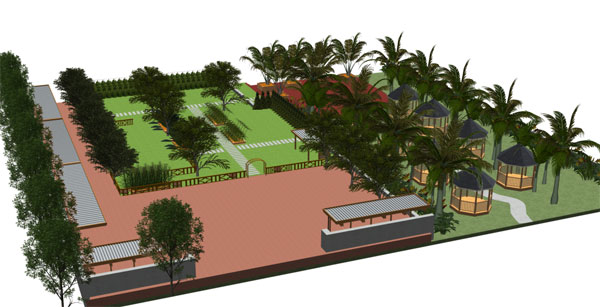In addition to light, tropical houseplants require regular watering and humidity to thrive. Most tropical plants prefer to be kept consistently moist, but not waterlogged, so be sure to water them when the top inch of soil feels dry to the touch. To increase humidity levels, particularly in drier climates, consider misting your plants regularly or placing them on a tray of pebbles filled with water.
Tropical houseplants are also known for their stress-relieving properties. Studies have shown that the presence of plants in indoor spaces can help to reduce stress, anxiety, and depression. The act of caring for plants can be therapeutic and grounding, allowing you to connect with nature and take a break from the demands of everyday life. The lush and vibrant foliage of tropical houseplants can also have a calming and uplifting effect, creating a peaceful and serene atmosphere in your home.
One of the main appeals of tropical houseplants is their ability to thrive indoors, even in spaces with limited natural light. Many tropical plants are well-suited to the lower light conditions found in most homes, making them an ideal choice for those with less than ideal growing conditions. In addition, tropical houseplants are generally low maintenance and easy to care for, making them a popular choice for beginners and experienced gardeners alike.
The trend of bringing the outdoors inside through the use of houseplants has been steadily growing in popularity in recent years. In particular, tropical houseplants have emerged as a popular choice for plant enthusiasts looking to add a touch of vibrancy and exotic beauty to their indoor spaces. These lush and vibrant plants not only add aesthetic appeal to a room but also offer a range of benefits for both physical and mental well-being.
Having houseplants in your home office or workspace can also have a positive effect on productivity. Studies have shown that workers in offices with plants are more productive, focused, and creative than those in environments without greenery. Plants have a calming effect that can help to reduce distractions and improve concentration.
Finally, fertilizing your tropical houseplants regularly will help to ensure that they have the nutrients they need to grow and thrive. Use a balanced, water-soluble fertilizer once a month during the growing season, and reduce feeding in the winter when plants are not actively growing. With proper care and attention, your tropical houseplants will reward you with lush foliage, vibrant blooms, and a touch of exotic beauty in your home.
Overwatering is a common mistake when caring for houseplants. In the UK, where the climate is often damp and humid, it’s important to allow the soil to dry out between waterings to prevent root rot and other issues. Be sure to monitor the moisture levels of your plants regularly and adjust your watering schedule accordingly.
In plants, there is a softness that helps warm a home by its organic forms that contrast exquisitely with the straight lines of space and furniture. The plant pot you select is just about as important as the plant itself. Before investing in a planter, consider your interior scheme; if your home is inspired by tropical stick to bamboo or natural material.
When it comes to designing a garden, there are several key elements to consider. These include the layout, plants, hardscaping features, and overall style. By carefully planning and combining these elements, you can create a garden that reflects your personality and enhances the beauty of your home.
In conclusion, tropical houseplants uk offer a range of benefits for both physical and mental well-being, making them a perfect addition to any indoor space. From their vibrant foliage and exotic beauty to their air-purifying properties and stress-relieving benefits, tropical houseplants can transform your home into a lush and vibrant oasis. So why not bring a touch of the tropics into your home with some beautiful tropical houseplants? Your mind, body, and spirit will thank you for it.
Light is a crucial factor in the growth and health of houseplants. In the UK, where natural light can be scarce, it’s important to place your plants Click In this article a location where they will receive sufficient sunlight. South-facing windows are ideal for most plants, but if natural light is limited, consider supplementing with artificial grow lights.
In addition to improving air quality, houseplants can also offer a number of health benefits. Studies have shown that indoor plants can help to reduce the incidence of colds, sore throats, and other respiratory ailments by increasing humidity levels and removing airborne pathogens.
 Furthermore, the accessibility of 3D garden design software has increased, with many programs now available online or as downloadable apps. This convenience makes it easier than ever for designers and homeowners to experiment with different ideas and collaborate on projects, no matter where they are located.
Furthermore, the accessibility of 3D garden design software has increased, with many programs now available online or as downloadable apps. This convenience makes it easier than ever for designers and homeowners to experiment with different ideas and collaborate on projects, no matter where they are located.